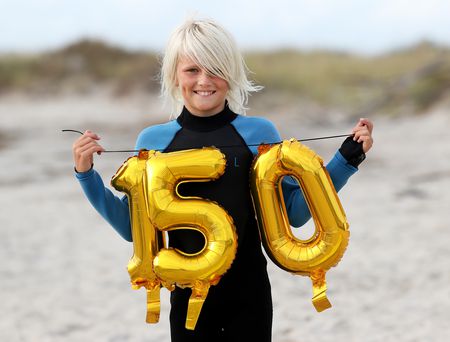From an economic perspective, professional surfing is a business like any other sport – it has to generate revenue to remain afloat.
The World Surf League (WSL) is the sole professional surfing circuit on the planet and features the world’s best athletes.
The show is run at more or less idyllic venues and followed by millions of surfing fans across the world.
The WSL Championship Tour is the successor of the ASP World Tour. Since it took over competitive surfing, WSL developed and implemented many interesting and valuable contributions to the sport.
Nearly everything got better.
The online broadcasts improved dramatically, the official website now provides all the information, videos, and pictures a fan could wish for, and the prize money paid to competitors increased substantially.
While it’s true that the WSL somehow “standardized” the show itself and the commentators’ insights, and the pre and post-heat interviews lost some their authenticity, it is also fair to say that, generally speaking, surfing is now better than ever.
The sport reached new audiences thanks to WSL’s continuous investment in fresh, innovative media content, and is currently using its social media influence to bring non-surfers into the game.
WSL was also one of the world’s first professional sports leagues to adopt equal prize money for both male and female surfers.
The organization is also making an effort to reduce its carbon footprint and leave each venue better than it was before a competition.

A Paradoxical Path
There is a growing number of companies trying to boost their products and brands’ exposure via healthy lifestyles. It is not a trend, but the strategy is now easier to spot.
Surfing is perhaps one of the best sports that can be used to promote food, drinks, and health care products.
However, hemp-derived products, alcoholic beverages, and energy drinks are not the healthiest consumer products out there.
Nothing against them, though.
The problem – or maybe it’s not a problem at all – is that WSL has inked sponsorship deals with three firms that represent the above-mentioned industry sectors.
cbdMD, a cannabidiol (CBD) firm, will sponsor the 2019/2020 Jaws Big Wave Championships. Corona is the official sponsor of the 2020 J-Bay Open, and Red Bull is responsible for the Airborne Series specialty events.
Yes, Red Bull has indeed been putting up great events and backing up the careers of thousands of surfers, kiteboarders, windsurfers, wakeboarders, and skateboarders.
Yes, it is true that Corona has been working to protect 100 islands from marine plastic pollution.
But should they be sponsoring surfing at the highest level?

Seeds for the Future?
Pro surfers have millions of young fans and followers, and the power to shape or change their lives through surfing.
Isn’t it a paradox that we’re sharing the values of surfing with the new generations while inviting them to consume these not-so-natural products?
Adults have the power to make responsible and conscious decisions, but children and teenagers don’t.
Given the path we’re on, what should we expect next from WSL? A multimillion deal with a fast-food chain and a long-term contract with a vaping company?
How will well-informed future generations cope with a sport that is simultaneously cleaning up beaches and replanting corals, and accepting money from unhealthy drinks or CBD-infused products that have not been officially declared prescription drugs?
It would be interesting to know what the athletes feel and think about the balance between sponsorship deals and the ethical values they represent every time they put a jersey on.
In the past, Garrett McNamara withdrew his XXL Big Wave Awards entry because the event had an alcohol company as a presenting sponsor.
But nowadays, it might be different.
We asked one of the best surfers in the world for his thoughts on the topic, but all we got from him was silence.
The times are definitely changing – from good to great?





Recent Comments